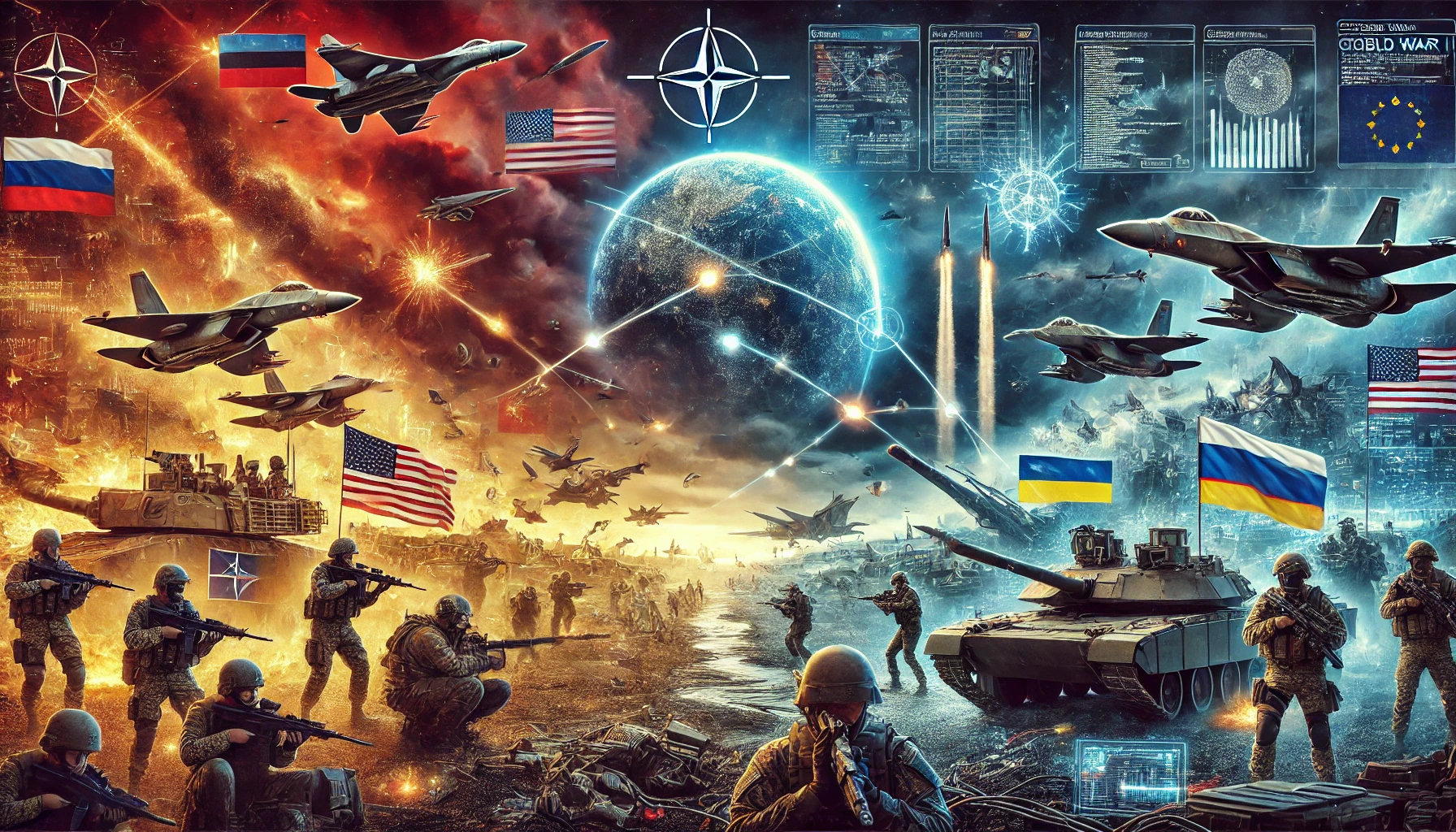Europe Unites Behind Ukraine: Assessing the Risk of World War III
Introduction
The recent collapse of talks between U.S. President Donald Trump and Ukrainian President Volodymyr Zelenskyy on February 28, 2025, has sent shockwaves through the international community. The abrupt end to the Oval Office meeting, marked by heated exchanges and accusations, has prompted European leaders to rally in support of Ukraine. This unified stance raises critical questions about the potential escalation into a global conflict reminiscent of World War III.
The Oval Office Confrontation
The highly anticipated meeting between Presidents Trump and Zelenskyy was intended to solidify a minerals deal aimed at bolstering Ukraine’s economy and strengthening its defense capabilities. However, the discussions deteriorated rapidly when Vice President J.D. Vance accused Zelenskyy of ingratitude, leading to a fiery exchange. President Trump escalated the situation by accusing Zelenskyy of “gambling with World War III,” abruptly ending the talks and canceling the proposed deal.
European Leaders Rally Behind Ukraine
In the aftermath of the failed meeting, European leaders have expressed unwavering support for Ukraine:
-
France: President Emmanuel Macron condemned Russia as an “aggressor” and reaffirmed France’s commitment to aiding Ukraine, stating that supporting Ukraine and sanctioning Russia were the right actions.
-
Germany: Chancellor Olaf Scholz reiterated Germany’s dedication to Ukraine’s sovereignty and condemned Russia’s ongoing aggression.
-
European Union: EU Foreign Policy Chief Kaja Kallas emphasized the need for Europe to step up and lead the free world, highlighting the urgency of defending the rules-based international order.
Potential for Escalation into Global Conflict
The unified European support for Ukraine, while strengthening the country’s position, also raises concerns about a broader conflict:
-
Increased Military Support: European nations may escalate their military assistance to Ukraine, potentially provoking a stronger response from Russia.
-
NATO Involvement: As NATO members bolster their support, the risk of direct confrontation between NATO and Russian forces increases, which could trigger a wider war.
-
Economic Sanctions and Cyber Warfare: Enhanced sanctions against Russia and potential cyber retaliations could further destabilize international relations, leading to unintended escalations.
Russia’s Response
Russia has reacted with satisfaction to the discord between the U.S. and Ukraine:
-
Dmitry Medvedev: The former Russian President described Zelenskyy’s treatment as a proper rebuke, reflecting Russia’s approval of the strained U.S.-Ukraine relations.
-
Military Actions: Following the Oval Office incident, Russian forces intensified attacks on Ukrainian cities, including drone strikes on medical facilities in Kharkiv, resulting in casualties and infrastructure damage.
Implications for Global Security
The current geopolitical dynamics have several implications:
-
Erosion of U.S. Leadership: The public dispute between Trump and Zelenskyy undermines U.S. leadership in global alliances, potentially emboldening adversarial nations.
-
European Autonomy: Europe’s unified stance may signal a shift towards greater autonomy in defense and foreign policy, reducing reliance on U.S. support.
-
Risk of Miscalculations: The heightened tensions increase the risk of miscalculations, which could lead to rapid escalation and a potential global conflict.
Conclusion
The solidarity demonstrated by European leaders in support of Ukraine underscores a commitment to uphold international law and deter aggression. However, this unity also brings the world closer to a precarious tipping point. Diplomatic efforts must be intensified to de-escalate tensions and prevent the outbreak of a conflict reminiscent of World War III. The international community faces a critical juncture where measured actions and renewed dialogue are essential to maintain global peace and security

